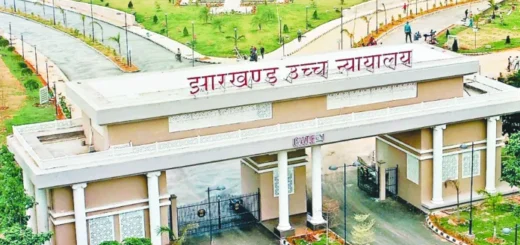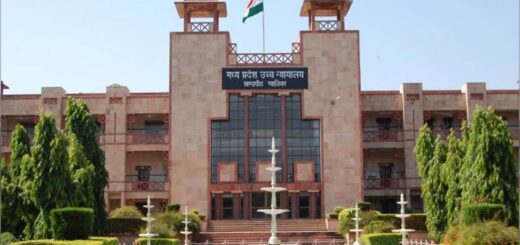Telangana High Court Orders Disciplinary Action Against Revenue Officer for Changing Records Despite Ongoing Status-Quo.

The Telangana High Court has mandated disciplinary measures against a Revenue Officer for changing revenue records and issuing a Pattadar Passbook to a private party, despite a court order to maintain the status quo. The Court was reviewing a Writ Petition that requested the restoration of original entries in the Revenue Records as per the status quo orders and the cancellation of the entries favoring the respondent. Justice C.V. Bhaskar Reddy, in a single-bench ruling, instructed, “Respondent No.1 must take appropriate disciplinary action against the officers involved in altering the revenue records and issuing the Pattadar Passbook, which violated the orders from 27.03.2014 and 24.02.2015 in W.P.No.9522 of 2014.”
The Petitioner was represented by Senior Advocate Nalin Kumar, while Senior Advocate Vedula Srinivas represented the Respondent. The Petitioner claimed that while two Writ Petitions were pending, and against the status quo orders from the Court, Respondent No.6 colluded with revenue officials to create documents and alter entries in the revenue records. The Petitioner sought a directive to restore the original entries and cancel those made in favor of Respondent No.6. The Court noted that it had previously issued an interim order to maintain the status quo regarding the revenue records, which was later extended. Additionally, the Additional Collector annulled the orders from the SGDC & RDO concerning the lands, stating that revenue authorities lacked the authority to declare the sale deed as fraudulent, especially after 40 years.
The Court noted that Respondent No. 6 deliberately hid important facts. The Court stated that Respondent No. 6, while involved in the proceedings from August 14, 2020, chose to withhold these facts. Following this, Respondent No. 6 submitted an application (No. RC2300006411) that included orders from File No. C/260/2014 dated March 7, 2014, issued by Respondent No. 3. These orders were related to the status quo established by this Court in W.P. No. 9522/2014 and were later canceled by the Additional Collector of Ranga Reddy District on August 14, 2020. The revenue officials, including the District Collector, Revenue Divisional Officer, and Tahsildar, who were part of W.P. No. 9522/2014, acted against the status quo orders without notifying the writ petitioner or other affected parties. This action was also against the ROR Act, 1971, its rules, and previous court rulings. They changed the property records in favor of Respondent No. 6, as the Court observed.
The Court noted that aside from denying the Petitioner’s rights, Respondent No.6 did not clarify when or in what proceedings the status-quo orders from W.P.No.9522 of 2014 were changed or canceled. “Given these proceedings, Respondent No.6 cannot claim that the revenue authorities properly followed procedures to change the entries in the revenue records, add Respondent No.6’s name to the Dharani Portal, and issue pattedar passbooks. Additionally, Respondent No.6 did not mention the orders from the Additional Collector, Ranga Reddy District, in Proceedings No.D1/1383/2014 dated 14.08.2020, despite being a party in those proceedings,” the Court remarked.
The Court emphasized that it is established law that a status quo order requires the current situation to remain unchanged until further notice. “Any actions taken against such orders are deemed illegal and without effect. The Hon’ble Supreme Court has repeatedly stated that any act done in violation of a status quo order is void,” the Court referenced the Supreme Court’s ruling in Satyabrata Biswas v. Kalyan Kumar Kisk.
All actions, including granting a sublease, are clearly illegal. In this case, while the status quo orders were in effect, respondent No. 6, involved in the proceedings, manipulated the records fraudulently. They worked with revenue officials to alter the revenue records, adding their name under Khata No. 60248. It is established law that any orders made by the respondent authorities during the status quo are invalid. Beneficiaries cannot claim rights from these invalid orders, and the officials who issued them may face disciplinary action for neglecting their duties and undermining the Court’s authority. The Court referenced the Supreme Court’s decision in K. Jayaram and others vs. Bangalore Development Authority and others, emphasizing that anyone approaching the writ court must be honest and disclose all relevant facts without hiding anything.
A party involved in a lawsuit must present all relevant facts. If they hide important information to gain an advantage, they commit fraud against the Court and the other party, which is unacceptable, the Court stated. In this case, the authorities disregarded the status quo orders from March 27, 2014, and February 24, 2015, issued by this Court in W.P.No.9522/2014. They did this without notifying the petitioner or affected parties and in violation of the law established by the Full Bench in the Chinnam Pandurangam case. They changed the property records and issued Pattadar Passbook No.T05070060231 under Khata No.60248 to respondent No.6. Such actions could not happen without the involvement of the revenue authorities, who are also part of W.P.No.9522/2014. Therefore, the actions of respondents 2 to 6 not only disrespected this Court’s authority but also constituted fraud. If these actions continue, public trust in the system and the institution will be lost, the Court noted. The Petition was thus granted.
Cause Title: M/s. Asian Tubes Private Limited vs. State of Telangana
Appearances:
Petitioner: Senior Advoacte Nalin Kumar, Advocate Pratusha Boppana
Respondent: Government Pleader for Revenue, Senior Advoacte Vedula Srinivas, Advocate P. Vijay Kumar









